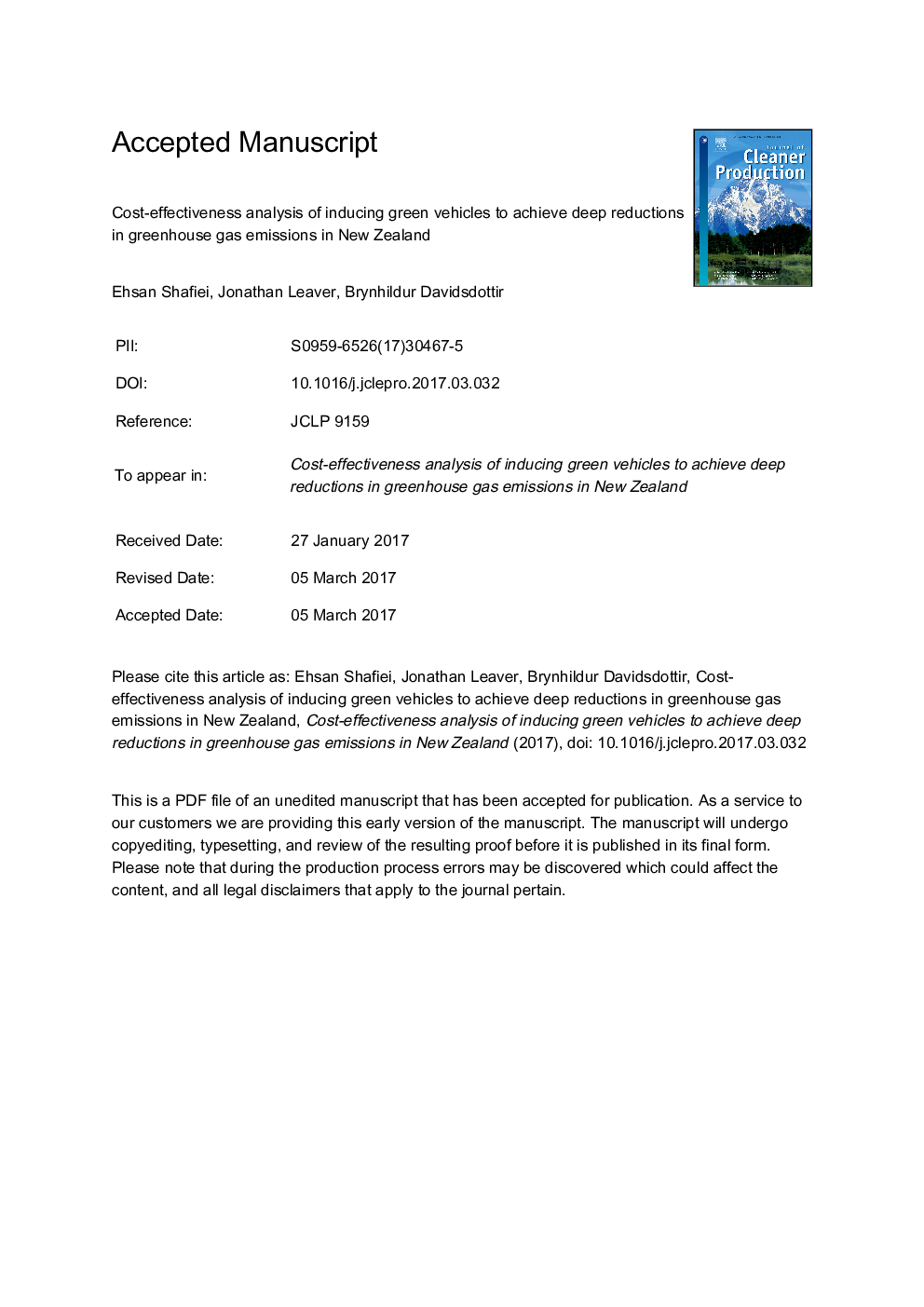| کد مقاله | کد نشریه | سال انتشار | مقاله انگلیسی | نسخه تمام متن |
|---|---|---|---|---|
| 5480595 | 1522103 | 2017 | 31 صفحه PDF | دانلود رایگان |
عنوان انگلیسی مقاله ISI
Cost-effectiveness analysis of inducing green vehicles to achieve deep reductions in greenhouse gas emissions in New Zealand
ترجمه فارسی عنوان
تجزیه و تحلیل هزینه-اثربخشی القا وسایل نقلیه سبز برای رسیدن به عمق کاهش انتشار گازهای گلخانه ای در نیوزیلند
دانلود مقاله + سفارش ترجمه
دانلود مقاله ISI انگلیسی
رایگان برای ایرانیان
کلمات کلیدی
مدل سیستم انرژی، خودرو نهایی، سوخت جایگزین، انتشار گازهای گلخانه ای، هزینه کم کردن هزینه، دینامیک سیستم،
موضوعات مرتبط
مهندسی و علوم پایه
مهندسی انرژی
انرژی های تجدید پذیر، توسعه پایدار و محیط زیست
چکیده انگلیسی
A simulation-based comparative analysis is implemented to assess different incentives for low or zero-emission vehicles (ZEV) to achieve deep reductions in greenhouse gas (GHG) emissions in New Zealand. For this purpose, an integrated energy system model, enabling a simultaneous simulation of fuel supply, energy markets, refueling infrastructure co-evolution, and fuel demand, is used. At the demand side, a nested multinomial logit framework gives the share of new vehicle types for both light- and heavy-duty vehicles based on consumer preferences toward vehicle and fuel attributes. Different supportive and prohibitive scenarios are compared. The supportive scenarios introduce incentives in terms of initial fuel infrastructure support and zero-emission vehicle subsidies. The prohibitive strategies impose different types of bans against the new adoption of petroleum fuel vehicles. The simulation results compare the implications of transition pathways for vehicle fleet mix, fuel demand, economic costs, and GHG mitigation. The findings show that the augmentation of initial infrastructure support with subsidy incentives for ZEVs will increase GHG mitigation without a meaningful rise in the mitigation cost. This strategy is more effective in emissions reduction than banning internal combustion engine vehicles (ICEVs). Banning both ICEVs and hybrid electric vehicles (HEVs) doubles the cumulative mitigation, albeit with a substantial cost increase, compared to the banning of ICEVs alone. Banning both ICEVs and HEVs could be less cost-effective at reducing GHG emissions than a rigorous ban of all petroleum fuel vehicles.
ناشر
Database: Elsevier - ScienceDirect (ساینس دایرکت)
Journal: Journal of Cleaner Production - Volume 150, 1 May 2017, Pages 339-351
Journal: Journal of Cleaner Production - Volume 150, 1 May 2017, Pages 339-351
نویسندگان
Ehsan Shafiei, Jonathan Leaver, Brynhildur Davidsdottir,
